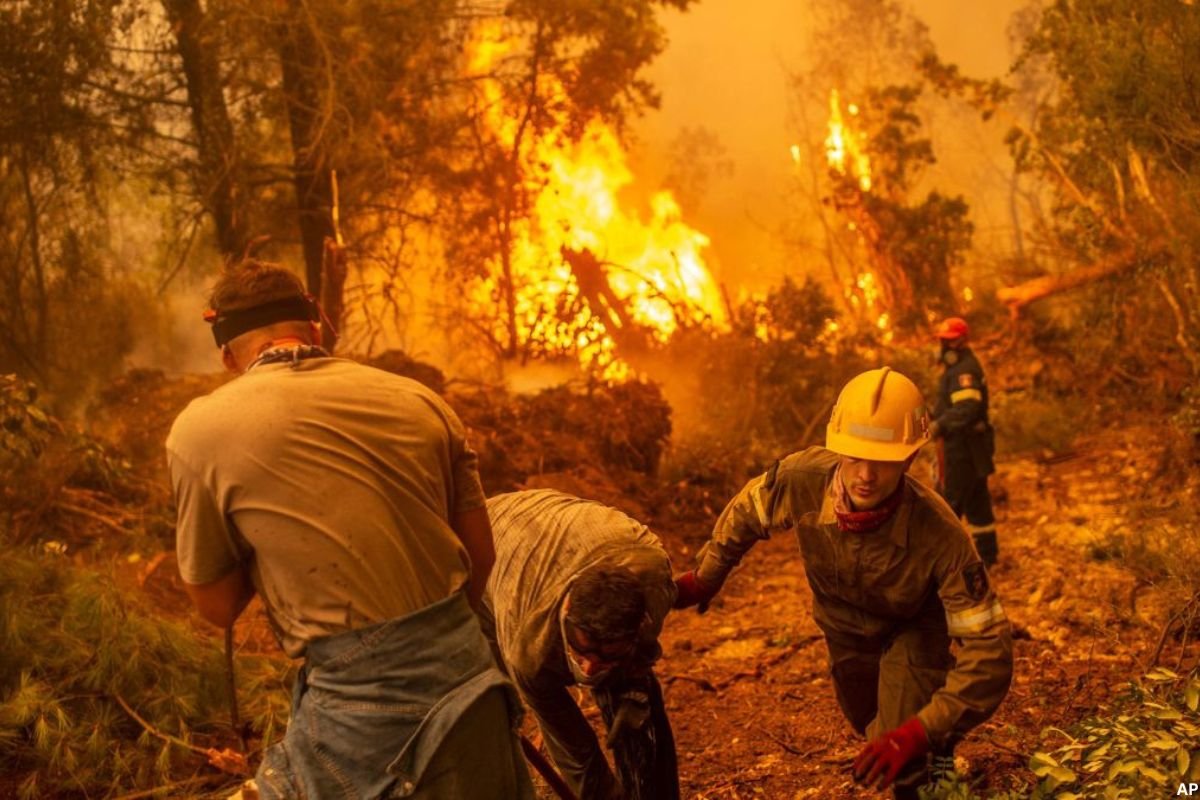Greece is bracing itself for a weekend of extreme heat, with meteorologists warning that temperatures could soar as high as 45°C (113°F). As a precautionary measure, people have been advised to stay indoors, and popular tourist sites, including the ancient Acropolis in Athens, will be closed during the hottest parts of the next two days.
According to one of the country’s top meteorologists, this could potentially become Greece’s hottest July weekend in 50 years. The situation is exacerbated by ongoing wildfires, with firefighting teams battling blazes in various regions, including Western Attica, Laconia in the southern Peloponnese, and the island of Rhodes.
To combat the wildfires, Greece has received assistance from its EU partners. France and Italy have provided firefighting planes, while Poland, Slovakia, Romania, and Bulgaria have sent over 200 firefighters. Even neighboring Turkey is contributing some aircraft to aid in the firefighting efforts.
The heatwave comes at a critical time for Greece’s tourism industry, as it experiences one of the busiest periods for visitors. The Hellenic National Meteorological Service (HNMS) has issued a warning of temperatures reaching 44°C in central and eastern regions on Saturday, with Sunday forecasted to be even hotter, possibly reaching 45°C in central Greece.
Meteorologist Panagiotis Giannopoulos stated that: “This weekend risks being the hottest registered in July in the past 50 years.”
“Athens is going to have temperatures above 40C for six to seven days, through to the end of July,” he added.
There are concerns that this heatwave could be the most severe since the devastating summer of 1987, which saw hundreds of deaths linked to extreme weather conditions.
Climate change plays a significant role in exacerbating hot and dry weather, creating favorable conditions for wildfires. The world’s temperature has already risen by approximately 1.1°C since the start of the industrial era, and without substantial global efforts to reduce carbon emissions, temperatures will continue to rise.
In addition to Greece, Spain, Italy, and parts of the United States have also been experiencing intense heatwaves, setting new records and posing challenges for residents and tourists alike.











